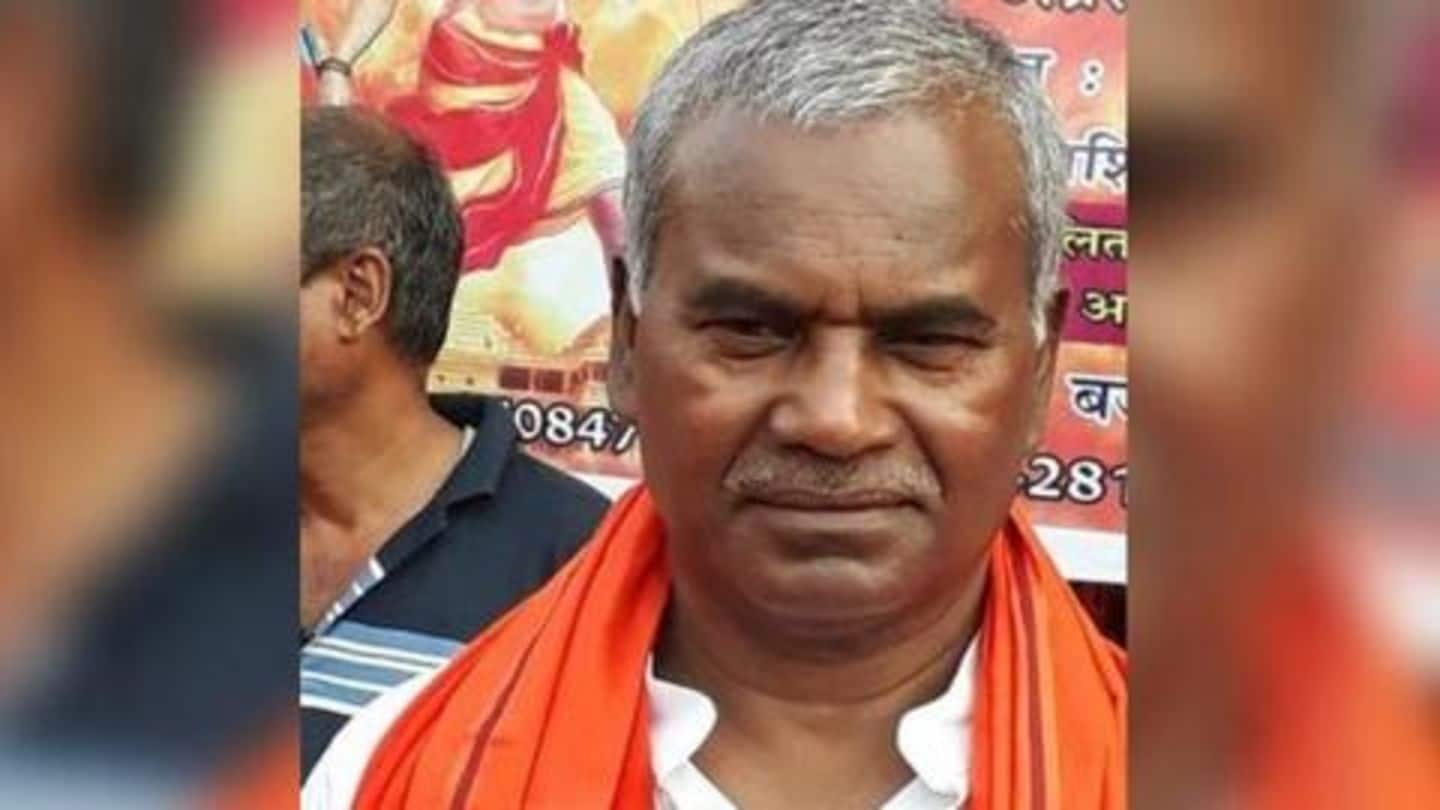
Who is Kameshwar Chaupal, Ram Mandir trust's Dalit member?
What's the story
Months after the Supreme Court paved the way for the construction of a Ram temple in Ayodhya, Prime Minister Narendra Modi on Wednesday announced a trust in the Parliament for the temple's construction. Further, Home Minister Amit Shah announced that the Shri Ram Janmabhoomi Teertha Kshetra Trust will have one member from the Dalit community. The member is Kameshwar Chaupal, the "first kar sevak."
Details
Wasn't appointed to trust solely because I'm Dalit: Chaupal
Chaupal told BBC Hindi that he only learned of his inclusion in the trust upon Wednesday's announcement. Speaking on his appointment, Chaupal said, "I think the Modi government has only included those who are deeply devoted to Hinduism, Hindutva and saint traditions." He said he wasn't appointed solely because he is a Dalit, but because of his advocacy for the temple from the get-go.
Roots
Chaupal hails from Bihar's Mithila region
Born on April 24, 1956, Chaupal hails from Bihar's Mithila region. In Hinduism, it is believed that the region was home to Goddess Sita, before she married the Hindu God Rama and moved to Ayodhya. Chaupal said that although Rama may be a God to the rest of the world, in Mithila, he is treated as a son-in-law, BBC reported.
Campaign
Chaupal joined Vishva Hindu Parishad in 1984
While pursuing a Master's degree from the Mithila University in Darbhanga, Chaupal joined the Vishva Hindu Parishad (VHP) in 1984. The same year, the VHP organized a Hindu Sammelan at Delhi's Vigyan Bhavan. Chaupal participated in the conference. He said it was at the Hindu Sammelan that a nationwide public awareness campaign for the construction of a Ram temple was announced.
The plan
Saints, religious leaders decided a Dalit should lay temple's foundation
Chaupal said that before the foundation stone for the Ram temple was laid in 1989, saints and religious leaders at a Kumbh Mela had decided that a Dalit would do the honor. VHP and RSS leaders settled on November 9, 1989, as the 'auspicious' date for shilanyas (laying of foundation stone). Chaupal was then the VHP joint general secretary in-charge of Bihar's tribal-dominated districts.
Foundation stone
Chaupal told to lay temple's foundation on day of 'shilanyas'
"Coincidentally, religious leaders invited me to lay the temple's first brick," Chaupal told BBC. Speaking to News 18 in 2017 on the events of November 9, 1989, Chaupal recalled that he was not informed that he had been chosen to lay the temple's foundation until the last minute. Then-VHP leader Ashok Singhal's close aide Rameshwar reportedly informed Chaupal of his duties that very morning.
Ceremony
'Could hardly comprehend what was happening'
Then aged 34, Chaupal laid the temple's first brick at the shilanyas site, close to where the Babri Mosque once stood. He was also sat beside Singhal at the ceremony. Chaupal told News 18, "I could hardly comprehend what was happening. I was an ordinary worker, sitting with who's who of the Hindu religious leadership." In 1992, the mosque was demolished by kar sevaks.
Politics
Chaupal contested 1991 Lok Sabha polls on BJP ticket
As he rose to prominence, Chaupal tried his hand at politics, contesting the 1991 Lok Sabha elections from Rosada on a BJP ticket. However, he lost. He then unsuccessfully contested the 1995 Bihar Assembly polls from Begusarai. In 2002, he was elected to the Bihar Legislative Council and served two terms. He also contested the 2014 Lok Sabha polls from Supaul, but lost.